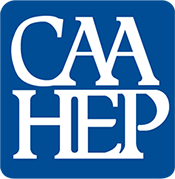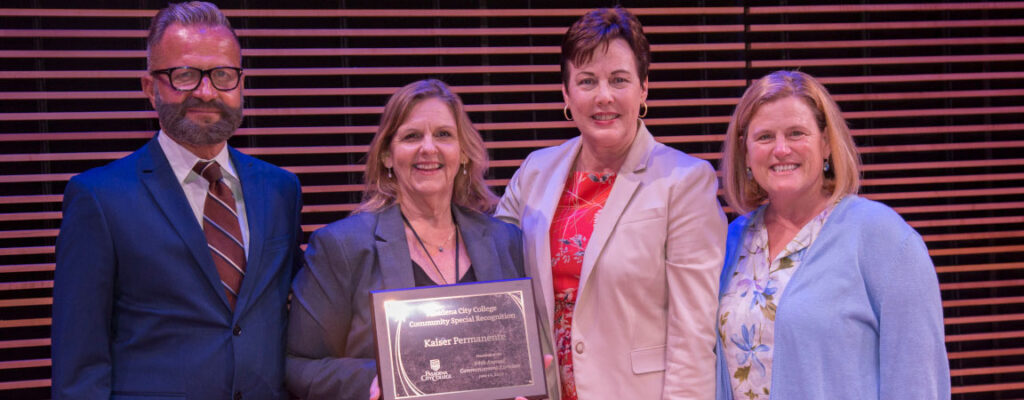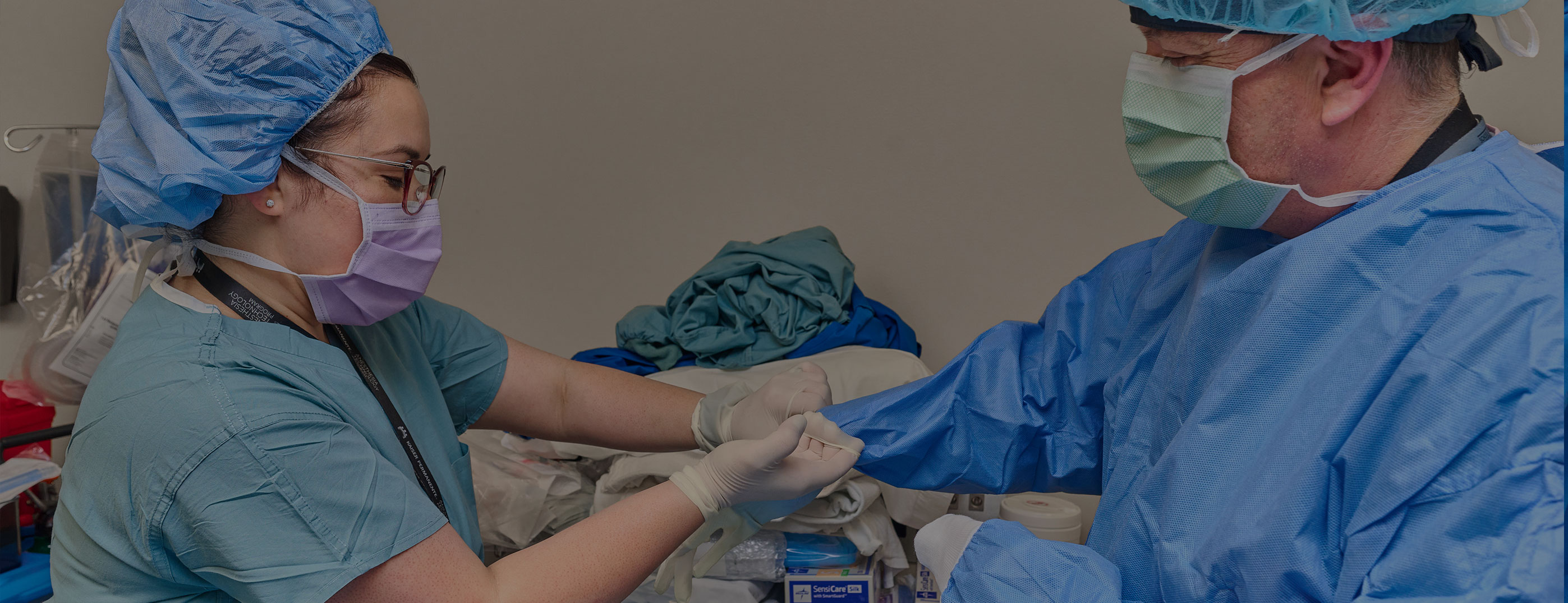Mission & Vision
The Kaiser Permanente Anesthesia Technologist Program exists to provide high-quality, academically rigorous instruction to prepare students to be essential members of the anesthesia care team.
Our vision is to be an innovative leader in a comprehensive, technologically challenging vocational curriculum for education in health science.
Purpose & Values
Upon completion of the program, an associate of science degree and Certificate of Achievement in Anesthesia Technology is awarded. The curriculum includes instruction in the latest technologies with emphasis on fundamental and advanced clinical procedures to assist licensed anesthesia providers in the care of patients undergoing anesthesia.
Core Values
- Student Development – Our primary goal is to challenge our students to immerse fully in the learning process while achieving academic excellence at their full potential.
- Community Service – Our commitment to social responsibility and diversity is reflected in our excellence, innovation, and highest standards of quality for our students and community.
- Respecting Partners – We excel through the talents, skills, and efforts of our dedicated colleagues with whom we have formed strategic partnerships.
- Innovative Learning – We foster an environment which values education, self-motivation, critical thinking, and lifelong learning where students share the responsibility for their academic success.
- Patient Focus – Our program is grounded in promoting anesthesia excellence in the care of the individual.
- Recognition of Our Excellence – The success of our team is based on a rich tradition of excellence, interdependent growth, ethical behavior, and mutual respect.
Diversity, Equity & Inclusion
The Kaiser Permanente Anesthesia Technology Program, in conjunction with Pasadena City College, has a deep and abiding commitment to practice diversity, equity, and inclusion both in the classroom and workplace, as well as to providing high-quality and affordable healthcare to its employees, members, and communities it serves.
Fostering, cultivating, and preserving this culture among students and employees contributes to an inclusive, psychologically safe workplace, where everyone has an equal opportunity to reach their full potential. Moreover, this commitment furthers KPAT’s dedication to provide culturally and linguistically responsive care, create health equity, and improve the care experience for everyone by working diligently to eliminate all forms of oppression in the healthcare system.
Accreditation Status
 | Commission on Accreditation of Allied Health Education ProgramsThe Kaiser Permanente Anesthesia Technology Program is fully accredited by the Commission on Accreditation of Allied Health Education Programs upon the recommendation of the Committee on Accreditation for Anesthesia Technologist Education through January 2031.9355-113 St N, #7709 Seminole, FL 33775 (727) 210-2350 www.caahep.org |
 | Western Association of Schools and Colleges (WASC)Pasadena City College is accredited by the Accrediting Commission for Community and Junior Colleges, Western Association of Schools and Colleges (WASC).10 Commercial Blvd #204 Novato, CA 94949 (415) 506-0234 www.accjc.org |
 | American Society of Anesthesia Technologists/Technicians (ASATT)The Kaiser Permanente Anesthesia Technology Program in partnership with Pasadena City College is approved by the American Society of Anesthesia Technologists/Technicians (ASATT).7044 S 13th St Oak Creek, WI 53154-1429 (414) 908-4942 www.asatt.org |
Our History
The Kaiser Permanente/Pasadena City College Anesthesia Technology Program (KPAT) began as a request from Kaiser Permanente leadership to provide additional training and education to Kaiser Permanente’s employed anesthesia technicians in Southern California.
Through extensive research, Michael Boytim, CRNA, EdD, Assistant Director of the Kaiser Permanente/California State University Fullerton School of Anesthesia, developed a draft academic and clinical curriculum to educate applicants from the community to become certified anesthesia technologists. The goal was to develop an associate degree educational program that would provide instruction to students to operate within a full scope of practice at the certified anesthesia technologist level upon graduation from the program, thus standardizing anesthesia technology practice in the Southern California area.
Dr. Boytim partnered with the Pasadena City College Health Sciences Division to offer an Associate of Science Degree/Certificate of Completion program. This was the first program in the U.S. to provide anesthesia technology education at the community college level.
Vicki Reyes, Certified Anesthesia Technologist, was then hired to further refine the educational program due to her vast experience in anesthesia technology leadership, education, and practice, as well as her affiliation as a pillar within the American Society of Anesthesia Technologists and Technicians (ASATT).
Upon graduation of the first class, all graduates immediately found positions throughout the area and achieved a 100% pass rate on the National Certification Examination (NCE) on their first attempt. This record of excellence still stands today.
The anesthesia community has seen an increase in the knowledge, skills, and abilities of our graduates which has greatly improved anesthesia care delivery and fostered the desire of current non-certified technicians to obtain additional education, enabling them to become certified through NCE. This has advanced the scope of practice throughout the anesthesia community, which promoted the employment trend to certified anesthesia technologists.
Dr. Boytim and Ms. Reyes have also developed the Committee on Accreditation of Anesthesia Technology Education, revised the NCE at the technologist level, and held a variety of positions with the ASATT Board of Directors, resulting in large national growth of educational anesthesia technology educational programs.

